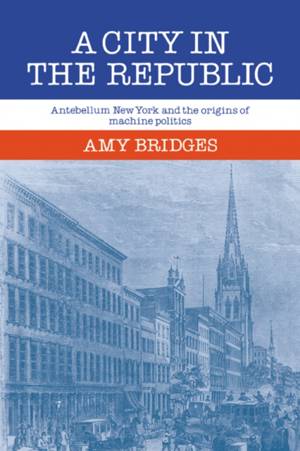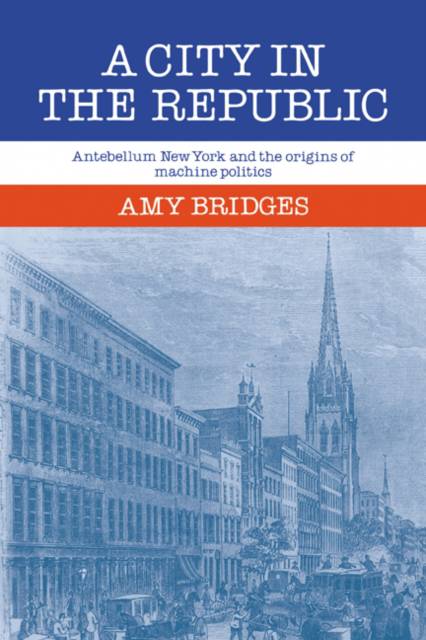
- Afhalen na 1 uur in een winkel met voorraad
- Gratis thuislevering in België vanaf € 30
- Ruim aanbod met 7 miljoen producten
- Afhalen na 1 uur in een winkel met voorraad
- Gratis thuislevering in België vanaf € 30
- Ruim aanbod met 7 miljoen producten
Zoeken
A City in the Republic
Antebellum New York and the Origins of Machine Politics
Amy Bridges
Paperback | Engels
€ 60,95
+ 121 punten
Uitvoering
Omschrijving
This study of the emergence of machine politics in New York City during the antebellum years sheds light on the origins of a system that was the characteristic form of government in United States cities from the mid-nineteenth until well into the twentieth century. In contrast to previous explanations that have found the origins of machine politics in immigrant culture and ethnic conflict, Professor Bridges shows that central elements of the system long predated a significant immigrant presence. Her analysis focuses on two large-scale transformations in the American political economy that occurred during these years: industrialization, which reorganized the social order and provoked conflict and change; and the extension of the franchise through the abolition of property barriers, which necessitated the incorporation of 'the many' into political life. It was this unique combination of circumstances, the author argues, that provided the context for the development of machine politics.
Specificaties
Betrokkenen
- Auteur(s):
- Uitgeverij:
Inhoud
- Aantal bladzijden:
- 224
- Taal:
- Engels
Eigenschappen
- Productcode (EAN):
- 9780521070881
- Verschijningsdatum:
- 28/08/2008
- Uitvoering:
- Paperback
- Formaat:
- Trade paperback (VS)
- Afmetingen:
- 150 mm x 226 mm
- Gewicht:
- 340 g

Alleen bij Standaard Boekhandel
+ 121 punten op je klantenkaart van Standaard Boekhandel
Beoordelingen
We publiceren alleen reviews die voldoen aan de voorwaarden voor reviews. Bekijk onze voorwaarden voor reviews.







